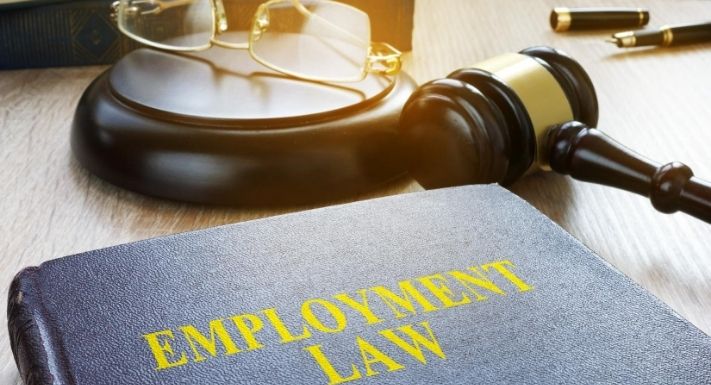
Requirements for a Medical Malpractice Claim
August 21, 2020
What To Ask Your Personal Injury Lawyer
August 26, 2020Many employees experience various types of unethical treatment from coworkers as well as from management. In fact, some treatment is bad enough to warrant employment lawsuits. Read this guide to learn about some of the most common types of employment lawsuits. When you’re more familiar with these unfair situations, you can better recognize when it’s time to take legal action.
Wrongful Termination
Some employees get laid off or fired for unfair or false reasons; sadly, managers may look for loopholes to get rid of employees and make their reasoning look legitimate. For instance, if a rule states that an employee must receive a write-up after clocking in five minutes late, their employer might try to write them up for clocking in four minutes late. A certain number of write-ups may lead to the employee’s termination. Another example of wrongful termination is when an employer accuses an employee of stealing without solid evidence. If you’ve found yourself in a similar situation, it may be time to take some steps toward proving that the termination was unfair.
How to Claim Wrongful Termination
If you believe you have been wrongfully terminated, there are many things you can do. First, determine whether your termination was actually a wrongful termination. You can do this by finding a copy of your company’s policies and looking for evidence that your employer broke one of the rules. Additionally, see if you can find a witness to vouch for your case. Then, discuss your wrongful termination with a human resources representative. After you do these things, be sure to find an employment attorney as soon as possible.
Discrimination
Another type of employment lawsuit is discrimination. Employers or even coworkers might discriminate against employees due to their age, race, gender, religion, sexual orientation, or disabilities. Signs of discrimination can include unequal pay, favoritism, failure to grant reasonable accommodations, exclusion from coworkers, and being given more responsibilities without a raise.
How to Handle Discrimination Cases
If you believe you are being subjected to discrimination, write down specific examples of the discriminatory phrases or actions. Record the dates of any occasions you can remember these acts occurring. The more details you record, the easier it will be for you to make a sound case.
Workplace Harassment
Keep in mind that there’s a difference between harassment and discrimination. Harassment involves inappropriate behavior toward a specific individual. In other words, any activity that makes someone feel unwanted or uncomfortable in the workplace is considered harassment. For instance, being bullied by coworkers is considered harassment because it’s just targeted toward one person or a few people. Even subtle cues such as an employee making seductive or suggestive facial expressions towards you is considered harassment. Therefore, unfortunately, workplace harassment is very common.
How to Handle Harassment
Before you take any legal action, remember to tell your supervisor or manager about the harassment. Perhaps a higher-up can help you sort out the situation and bring it up to Human Resources before it escalates and requires legal help. Also, make sure to note any other times you may have noticed similar behaviors. It might not seem useful if the harassment happened a long time ago and you have no evidence of it, but your boss and an attorney will take all those details into consideration.
Refusal to Correct Payment Mistakes
If you notice a paycheck is significantly lower than previous paychecks when you worked the same number of hours, you might be able to claim a lawsuit for unfair pay. However, it’s important to remember that mistakes happen. Before you take any legal action, talk to your boss or manager. Perhaps there was a time when you didn’t clock in or out, or maybe it was due to an issue with the clock-in system. If you talk to your employer about your unequal pay, perhaps they’ll apologize for the mistake and fix it right away. However, if your manager or boss refuses to look into the issue and asks you not to talk to HR, you should take legal action right away.
How to Handle Refusal to Correct Payment Mistakes
When you see a low number on a paycheck, assuming you received unfair pay can be easy. However, before you take legal action, you should first make sure there were no errors in previous paychecks. Also, double-check your total hours. Write down when you received low pay and the amount you believe you should have received. Then, discuss this issue with your boss, manager, or HR. If they don’t take the appropriate action, look into an employment attorney as soon as you can.
Workplace Injury
If an employee gets injured on the job through no fault of their own, employers cannot try to argue against their employee’s injury claim. If they do, the employee has the right to file an employee lawsuit. Some types of workplace injuries include exposure to toxic chemicals, slips and falls, violence caused by another person, and getting hit by falling objects.
How to Handle Workplace Injury
If you have been injured on the job, then you need to take a few steps before you file a lawsuit. First, write down how and when you got the injury, and report it to your employer. This will give you proof of workplace injury. Then, determine the severity of your injury. Even if the injury doesn’t warrant immediate care, you still need to report it and go to the doctor for treatment.
As you can see, there are many types of employment lawsuits. Now that you know some of the most common types of employment lawsuits, you also know what to be aware of in the future. Here at Rossman Law Group, our Idaho lawyers take the time to examine each individual case. This way, we make sure you get the compensation you deserve. Plus, our dedication to our clients has resulted in numerous successes over the years. If you believe you qualify for an employment lawsuit and wish to work with an experienced team, call us for your free consultation today.






